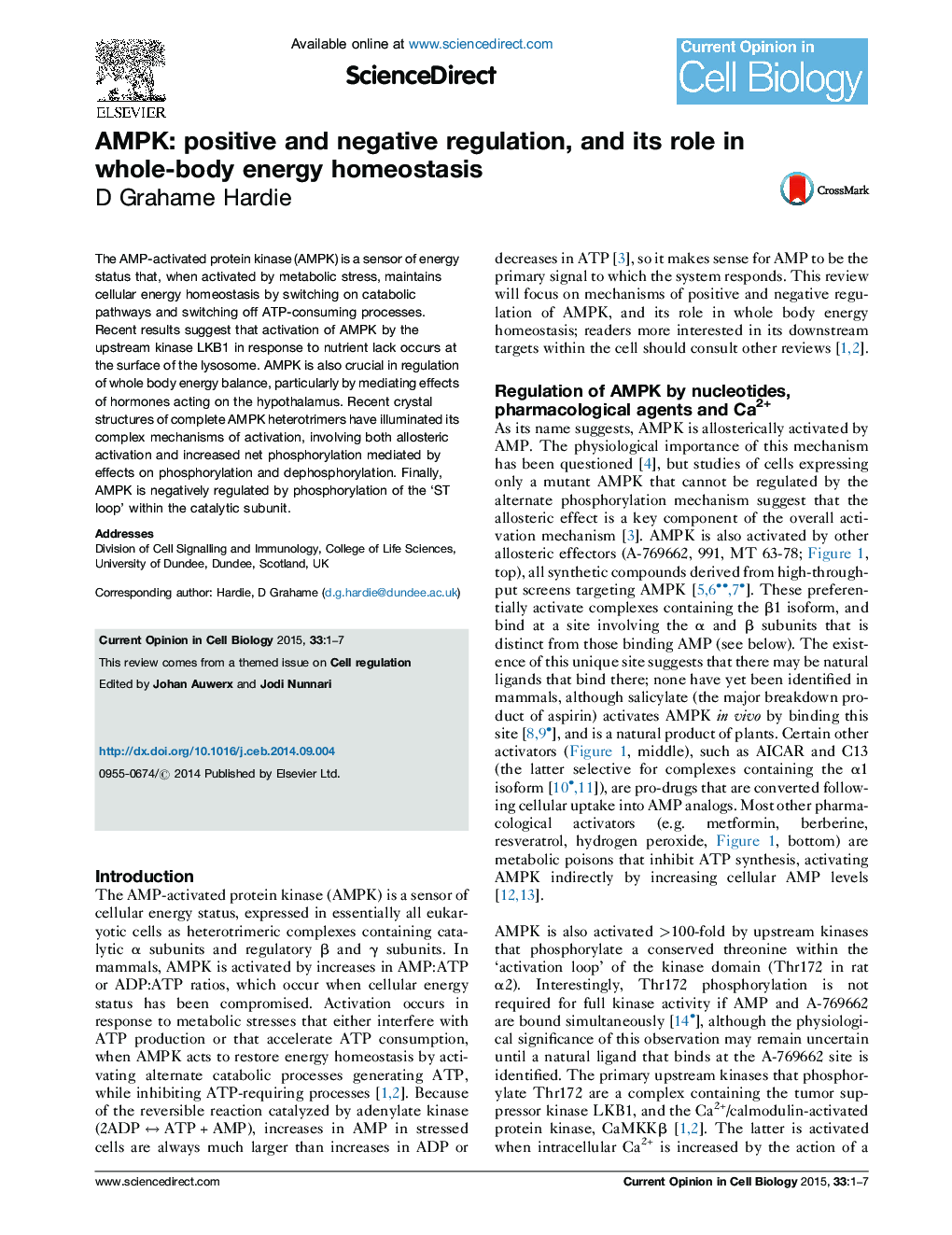| Article ID | Journal | Published Year | Pages | File Type |
|---|---|---|---|---|
| 8465589 | Current Opinion in Cell Biology | 2015 | 7 Pages |
Abstract
The AMP-activated protein kinase (AMPK) is a sensor of energy status that, when activated by metabolic stress, maintains cellular energy homeostasis by switching on catabolic pathways and switching off ATP-consuming processes. Recent results suggest that activation of AMPK by the upstream kinase LKB1 in response to nutrient lack occurs at the surface of the lysosome. AMPK is also crucial in regulation of whole body energy balance, particularly by mediating effects of hormones acting on the hypothalamus. Recent crystal structures of complete AMPK heterotrimers have illuminated its complex mechanisms of activation, involving both allosteric activation and increased net phosphorylation mediated by effects on phosphorylation and dephosphorylation. Finally, AMPK is negatively regulated by phosphorylation of the 'ST loop' within the catalytic subunit.
Related Topics
Life Sciences
Biochemistry, Genetics and Molecular Biology
Cell Biology
Authors
D Grahame Hardie,
